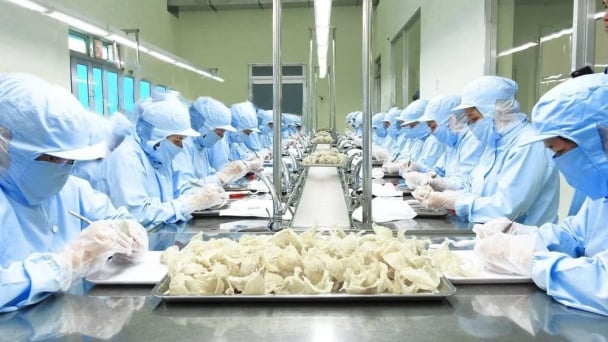May 16, 2025 | 04:32 GMT +7
May 16, 2025 | 04:32 GMT +7
Hotline: 0913.378.918
May 16, 2025 | 04:32 GMT +7
Hotline: 0913.378.918

ABPA sees total production of up to 15 million tonnes of chicken meat in 2024, which is 1.1% higher than that recorded in 2023. Photo: Canva.
For chicken meat, ABPA sees total production of up to 15 million tonnes in 2024, a number approximately 1.1% higher than that recorded in the same period last year, at 14.833 million tonnes.
Of the 2024 total, 9.7 million tonnes were destined for the domestic market, a volume almost equivalent to the total for 2023 (9.694 million tonnes). Per capita consumption is expected to be 45.6 kgs, which is 1.1% higher than that recorded last year (45.1 kgs). In the international market, chicken meat exports are expected to total 5.3 million tonnes in 2024, which is 3.1% higher than the volume shipped in 2023 (5.139 million tonnes).
Further growth in 2025
For 2025, the sector projects to produce up to 15.3 million tonnes (+2.7%), with availability of around 9.9 million tonnes (+2.1%), with per capita consumption at 46.6 kgs (+2.2%) and exports of up to 5.4 million tonnes (+1.9%).
“The Brazilian economic situation should maintain sustained levels of consumption in the domestic market, supported by the sector’s continued competitiveness. In the international scenario, new market openings are expected in Central America and African countries, in addition to increased shipments to other Latin American and Asian nations, which should increase the diversification of destinations for our products,” assesses ABPA president Ricardo Santin.
Egg sector
As for the egg sector, production in 2024 is expected to reach 57.6 billion units, which is 9.8% higher than the previous year (52.448 billion units). Per capita consumption will reach 269 units in 2024, which is 11.2% higher than the previous year (242 units). Egg exports are expected to reach 18,000 tonnes, 29.5% lower than last year (25,404 tonnes).
For 2025, the sector projects production of 59 billion units (+2.4%), with per capita consumption of up to 272 units (+1.1%) and shipments of 21,000 tonnes (+16.7%).
“There are optimistic expectations about the increase in egg consumption levels in Brazil, reaching levels never experienced before, which reinforces the consolidation of protein as a basic consumption item in the country. In the international market, the opening of the European bloc and United Kingdom markets for the product is expected next year, which should change the flow of exports to positive levels,” highlights the president of ABPA, Ricardo Santin.
(Poultryworld)

(VAN) Japan's efforts to lower the price of rice through the release of its stockpile may finally be making some progress, albeit at a snail's pace.

(VAN) U.S. tariffs are not only a 'shock', but also an opportunity for Vietnamese businesses to renew their mindset toward comprehensive development.

(VAN) As Bac Giang lychee enters the harvest season, Minister Do Duc Duy expects that the fruit will contribute greatly to agricultural exports due to standardized production and deep processing.

(VAN) Consumers have shown a preference for free-range eggs, but those farming systems are more vulnerable to biosecurity risks like bird flu.
/2025/05/09/5701-1-184335_301.jpg)
(VAN) Vietnam’s eel exports nearly doubled thanks to a mud-free farming model, opening up new prospects while still facing numerous barriers related to international standards.

(VAN) Minister Do Duc Duy warned that if production is not professionalized and supply chains are not transparent, the U.S. market could become a growth bottleneck.

(VAN) Delegating surveillance responsibilities to local authorities is a cost-saving and efficiency-boosting measure that removes a key bottleneck for enterprises, according to Director General Duong Tat Thang.